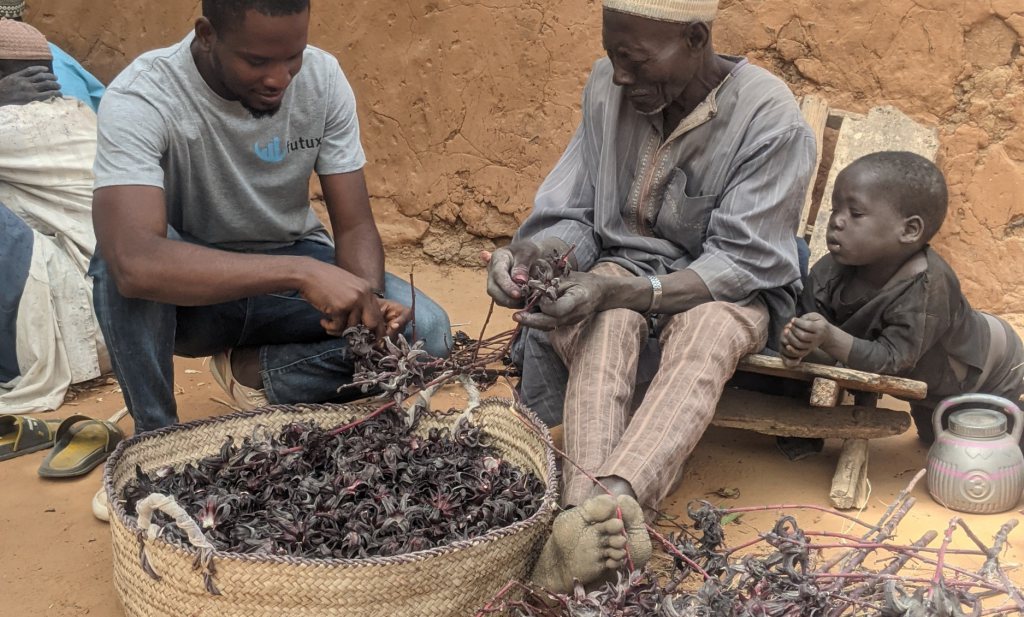Investment in human capacity development is one of the best investments that can result in increased productivity, especially in the agricultural sector in developing countries.
Over the years, the main challenge of smallholder farmers is having to continue utilizing production skills that are obsolete and do not improve productivity as against improved skills or knowledge that give ripple effects. Although several organizations have developed and implemented various training programmes to improve the capacity of smallholder farmers, still new technologies or approaches are yet to be fully adopted by these farmers.
One of the main missing links in most of the training programmes is the place of hand holding or coaching or mentorship. This is because a training of 5 days or 7 days or more days is not sufficient to achieve the type of behavioural change needed to reinforce continuity. Every new knowledge passed down to smallholder farmers needs to be reinforced through hand holding sessions or mentorship that could take a period of one or two production season (s) for them to internalize such new information. This approach gives smallholder farmers a better perspective which is practical-oriented.
It also helps to build more confidence in the knowledge acquired , and then farmers tend to adopt and continue usage better. Hand Holding or coaching programme should be done by experienced extension officers who understand and have practical experience in new information, technology, or innovations so as to ensure easy implementation of the adoption process. Furthermore, at every stage of the adoption process, appropriate methodologies would be employed to reinforce the new information, technology, or skills to better provide the much needed guidance to the farmers to make more informed decisions.
In conclusion, as we invest in human capacity development among smallholder farmers, we need to look at the long-term term impact rather than short term outcomes of the intervention programmes to be implemented. Also, farmers need to be hand held so as to experience more positive results, especially improvement in their livelihood, which is very key to them as it influences their social capital and sustainability of their social status (living above poverty line). Therefore, more stakeholders need to ensure that human capacity development is consciously implemented through handholding and the long-term goal achieved, having in mind that zero hunger is the destination to reach on time.
Yours-in-Service
Babatunde
One of the main missing links in most of the training programmes is the place of hand holding or coaching or mentorship. This is because a training of 5 days or 7 days or more days is not sufficient to achieve the type of behavioural change needed to reinforce continuity. Every new knowledge passed down to smallholder farmers needs to be reinforced through hand holding sessions or mentorship that could take a period of one or two production season (s) for them to internalize such new information. This approach gives smallholder farmers a better perspective which is practical-oriented.
It also helps to build more confidence in the knowledge acquired , and then farmers tend to adopt and continue usage better. Hand Holding or coaching programme should be done by experienced extension officers who understand and have practical experience in new information, technology, or innovations so as to ensure easy implementation of the adoption process. Furthermore, at every stage of the adoption process, appropriate methodologies would be employed to reinforce the new information, technology, or skills to better provide the much needed guidance to the farmers to make more informed decisions.
In conclusion, as we invest in human capacity development among smallholder farmers, we need to look at the long-term term impact rather than short term outcomes of the intervention programmes to be implemented. Also, farmers need to be hand held so as to experience more positive results, especially improvement in their livelihood, which is very key to them as it influences their social capital and sustainability of their social status (living above poverty line). Therefore, more stakeholders need to ensure that human capacity development is consciously implemented through handholding and the long-term goal achieved, having in mind that zero hunger is the destination to reach on time.
Yours-in-Service
Babatunde
Related



